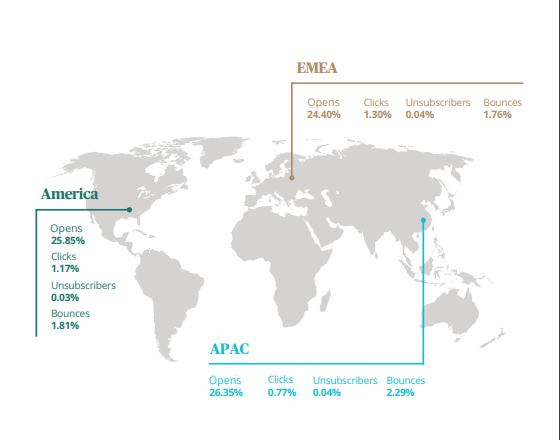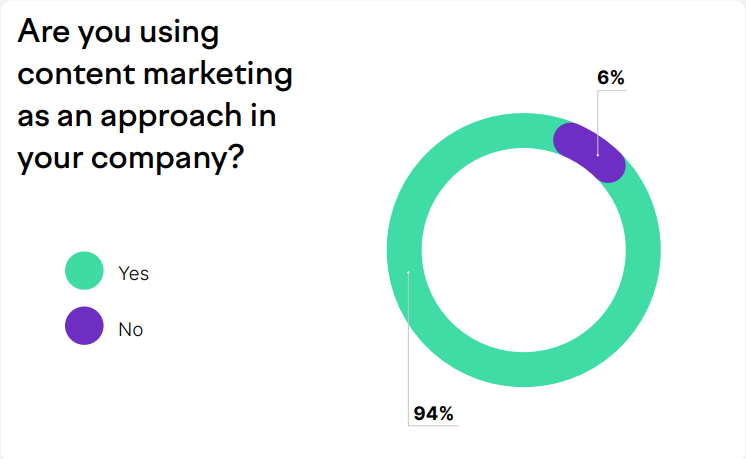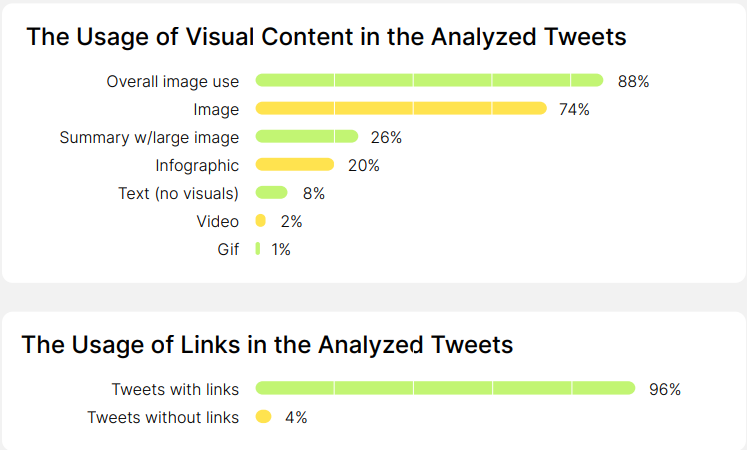30-second summary:
- Consumers are becoming more conscious of how they shop, with an increased focus on small, minority-owned, women-owned, and Black-owned businesses.
- Shopping this year has more sentimental value as shoppers look for a morale boost. Nearly, half, (43%) of consumers used shopping as a means to cheer up family and friends.
- Mastercard predicted that 77% of Americans will choose to shop local while 75% of consumers intend to prefer shopping from businesses that share their personal values.
- Email and content marketing have stood as pillars for brands through 2020, these will be a make or break factor for businesses to succeed in 2021.
- Email marketing has an average ROI that is 4X higher than any other channel with APAC getting the highest open rates and EMEA winning the highest CTR.
- The top seven industries in terms of open rates and CTR revealed.
- Top priorities businesses must-have for email marketing 2021.
- Lead generation, website traffic, and improving brand reputation are the top three priorities using content marketing.
- 56% of organizations spent between $10,000 to $25,000 on content marketing.
- Website analytics tools and SEO tools were the top two used technologies for content marketing.
- 69% of businesses created content for “Top of the funnel” in 2020.
- A drill-down of content marketing as a strategy and what makes content succeed in terms of strategy, views, shares, and more. Read on to unlock these insights.
We’re nearing the end of 2020 for good, and as we as people, consumers, and brands have learned, unlearned, and adapted to a lot of dynamics, this week we will take you through the pillars for brand success in 2020 – email marketing and content marketing. Their role in (Read more...) minds of a more conscious consumer, best practices, and stats on what worked and what didn’t. Read on for a 20/20 strategic vision of 2021.
Consumers’ changing shopping attitudes
Consumers have shown exceptional resilience and adaptability to the pandemic and retail. Global payments giant, Mastercard highlighted that consumers are becoming more conscious of how they shop, with an increased focus on small, minority-owned, women-owned, and Black-owned businesses.
In fact, shopping this year has more sentimental value as shoppers look for a morale boost. Nearly, half, (43%) of consumers used shopping as a means to cheer up family and friends while 40% shopped to get in the holiday spirit.
Mastercard predicted that 77% of Americans will choose to shop local while 75% of consumers intend to prefer shopping from businesses that share their personal values this holiday season. In fact, consumers would rather not receive a gift than accept one which has been purchased from a retailer that doesn’t align with their personal values.
Some key findings from the Mastercard study were:
- Total U.S. retail sales grew 4.1% for the expanded October 11-December 24 holiday season, compared to the same period in 2019
- 64% of consumers will actively avoid gifting cash this year
- 52% of respondents plan to ship more gifts to their loved ones’ homes to avoid person-to-person contact (hence emphasizing the importance of free-shopping for online retailers)
- 59% intend to spend the same or more money on holiday shopping (2020 vs 2019)
- Almost half (43%) note having more to spend on holiday gifts because they haven’t spent as much as usual over the course of 2020
- 82% said they are likely to shop online this year
“While the holidays may look different this year, one thing is clear – Americans are shopping with a different perspective,”
said Linda Kirkpatrick, president, US Issuers at Mastercard
Top cities according to holiday shopping spend
Mastercard Spending Pulse analysis of retail sales in the 20 largest U.S. metropolitan areas, where total retail sales grew 4.1% in October and cities including Atlanta, Houston, and Orlando emerged as leading the retail recovery.
As consumers become increasingly conscious of their shopping preferences and habits, the importance for brands to have transparency and maintain the same communication and language across all channels will be a high priority.
Since content and email marketing have stood as pillars for brands through 2020, these will be a make or break factor for businesses to succeed in 2021.
Email marketing: Performance overview 2020 and 2021 strategy
Email marketing has an average ROI that is 4X higher than any other channel. SMB digital marketing, Sendinblue, analyzed the data of 691 companies across 25 industries in 46 countries over one year/through 2020 to release its 2020 email marketing industry report. Here’s the email marketing overview in a snapshot.
- Q1 – Open rate peaked in March with 28.05% while CTR remained low
- Q2 – CTR peaked in June at 6.45%. Interest in offers and emails rose substantially
- Q3 – The best time to update your contact lists, set up automation workflows, or run A/B test in your mailings as the majority of people ignore emails on summer holidays
- Q4 – Fewer campaigns sent out compared to the previous half of the year. Email volumes peak in November. Sending times are of essence.
Key findings included region specifics and details about the best send times for B2B and B2C businesses:
- APAC: Highest open rates but lowest CTR
- EMEA: Low open rate but highest CTR
- The Americas: Average open rates and CTR, but the lowest unsubscription rate (indicating more brand loyalty vs APAC and EMEA)
- APAC send the most mails (47.1% of total email volume) and also has the highest bounce rate
- “Fashion/ Beauty” has the highest volume with 796 campaigns sent, which represents 554 more campaigns than the median.
- “Insurance” has the lowest volume with only 70 campaigns sent, which is 172 less than the median.
- Best days for B2B mails were Mondays and Tuesdays, early mornings
- Best days for B2C mails were afternoons during the week, and weekends
 Top seven industries in terms of CTR
Top seven industries in terms of CTR
- Media/Publishing (9.34%)
- Insurance (8.58%)
- Household/Garden (7.81%)
- Electronics/Hardware (7.68%)
- Association (Club/Religions) (7.38%)
- Healthcare/Fitness/Food (7.17%)
- Fashion/Beauty (7.06%)
Top seven industries in terms of open rate
- Marketing/Advertising (38.10%)
- Association (Club/Religions) (36.75%)
- Insurance (36.25%)
- Electronics/Hardware (31.35%)
- Gambling/Lottery (30.70%)
- Event/Entertainment (27.70%)
- Agency/Consulting (26.25%)
Top priorities for email marketing 2021
- GDPR compliant registration form
- Transparency
- Sender id variations ([email protected], [email protected], [email protected])
- Personalization of subject lines, CTAs, linguistic style, and content
- Direct speech and strong verbs
- Aligning the link description and target
- Link the full information for further reading
- Automate the exclusion list to save time
Content marketing: Performance overview 2020 and 2021 strategy
Recently, SEMrush launched their ‘State of Content Marketing 2020 Global Report’ which analyzed 600 000+ tweets, 1,200,000+ blog posts, and surveyed 1,500+ marketers across the globe. Here are some key findings:
- Almost 84% of survey respondents have a content strategy
- Lead generation, website traffic, and improving brand reputation are top three priorities using content marketing
- 56% of organizations spent between $10,000 to $25,000 on content marketing
- Just 11% evaluate their content strategy as “excellent”
- Website analytics tools and SEO tools were the top two used technologies for content marketing
- 69% of businesses created content for “Top of the funnel” in 2020
- Strategy development is one of the top three skills required for a content marketer
- SEO is the top discussed topic (18.32%)
- #DigitalMarketing is the most popularly used hashtag (71%)
- #SEO is the second most popular hashtag (62%)
- 7000+ word articles got almost 3X more page views and 43% more shares vs 900–1200 word articles
- Clear structures (H2+H3+H4) help improve content performance
- One list per 500 words of plain text got 70% more traffic than posts without lists
What were the most effective ways to use content marketing in 2020?
These were the top five most-used tactics by digital marketing teams:
- SEO
- Repurposing content
- How to guides/Educational content
- Optimizing customer journey
- Video/Visual content
Top topics related to content marketing
The top three topics were – Strategy, SEO, and social media. While Tools, trends, AI, and content ideas were the lesser talked about topics.
Tweets that win
Time is the name of the game for Twitter. What kinds of Tweets won the sweet spot on Twitter users’ timelines and devices?
Top Google searches regarding content marketing
Even though Google being down recently made the rounds on social media but we can understand why – Google handles nearly 5.6 billion searches per day! Coming back to content marketing and search queries, these were the top three Google search queries SEMrush recorded:
- Content marketing strategy
- Content marketing agency
- Content marketing examples
What kind of content performs best?
In terms of unique pageviews, articles ranging between 3000 to 7000+ words work well. However, articles that saw the highest shareability ranged between two categories – 1501 to 2000 words, and 5001 to 7000+ words.
If you’re looking at winning backlinks, articles within the range of 1201–1500 words championed these criteria.
Headlines that performed the best in terms of unique pageviews, shares, and backlinks were in these formats:
- Lists
- Guides
- Questions
- How-to
Headings (H1 tags) that were the best performing ranged between 10-13 words, followed by headings with 14 words.
Content with 6-7 images performed best in winning unique pageviews and shares.
For brands wanting to win with video content in their articles, adding 1-3 videos fell into the healthy threshold for winning backlinks, unique pageviews, and shares.
ClickZ readers’ choice for the week
2020 has been cold and marketers have been hungry for insights all year long. This week, our readers have been roasting their marketing marshmallows on the flame of forecasts for 2021 in terms of retail and digital marketing, with a sprinkle of some delightful thoughts from our interview with marketing leaders – eBay, IBM Watson, FILA, and Salesforce. Bon appetite!





